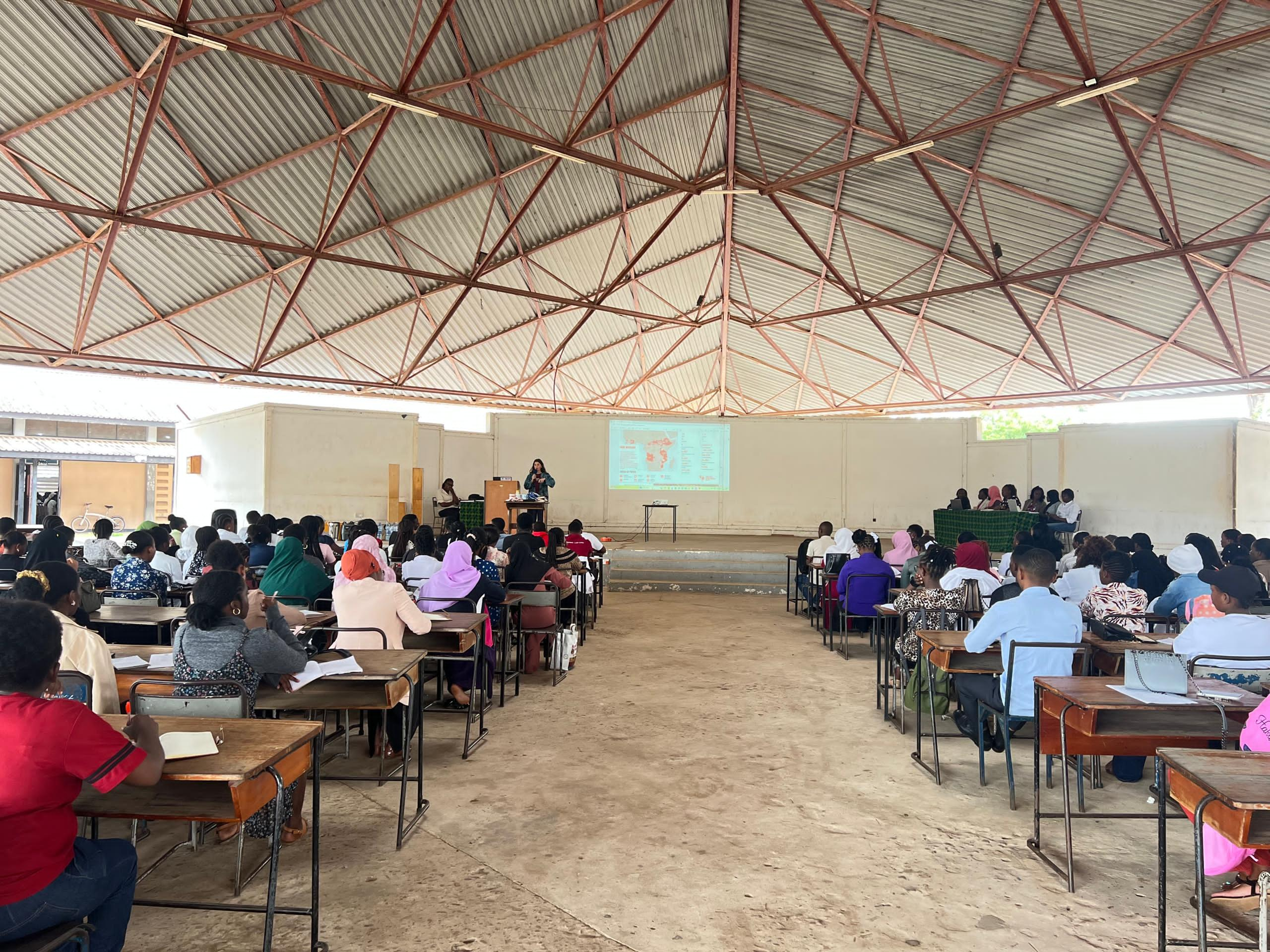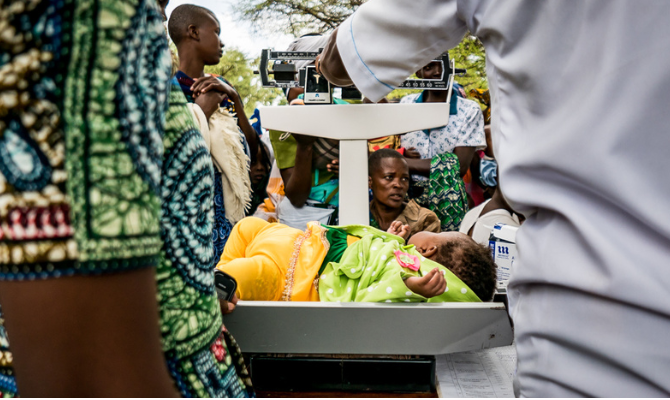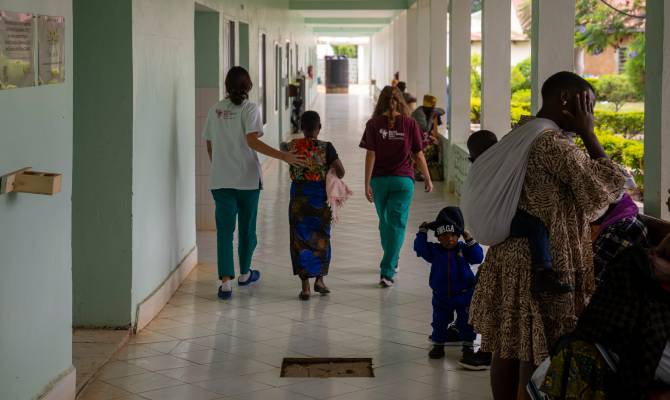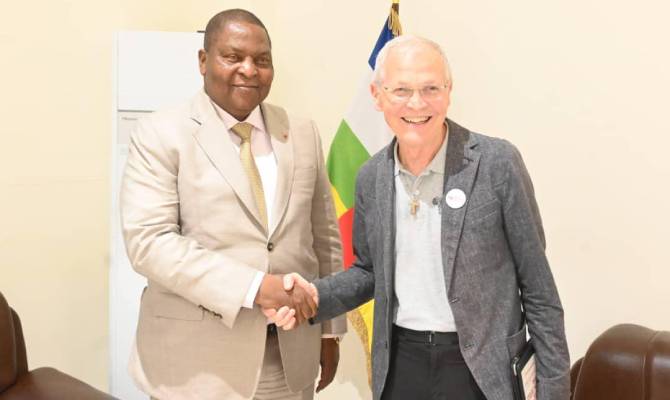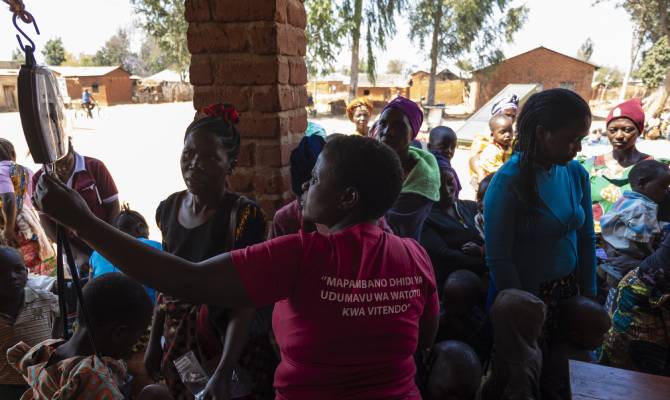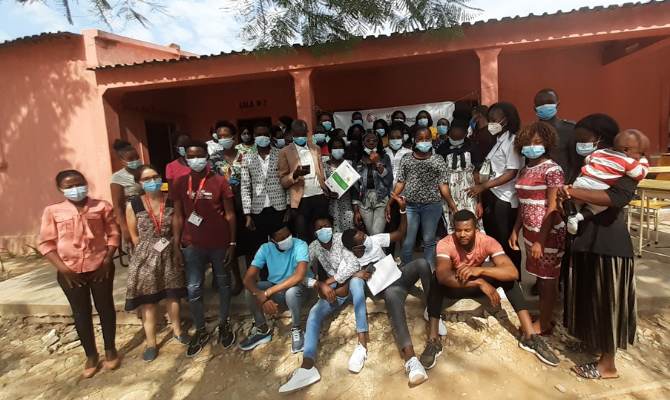What do a bracelet, a scale, and a board have to do with health?
They have a lot to do with it, because the bracelet is the Muac, a strip of colored paper used to measure the circumference of the arms of children under 5 years of age, the scale is used to weigh them, and the wooden board measures their height. These simple tools were tested by 150 students from various degree courses (Human Nutrition, Family and Consumer Studies, and the Master’s in Nutrition) at Sokoine University in Morogoro, Tanzania.
The occasion was CUAMM’s proposal to hold two seminars on severe malnutrition (severe wasting) and Early Childhood Development, the motor and socio-cognitive development of children, on Thursday 29 and Friday 30 May. The proposal was welcomed with great enthusiasm and willingness by the university management. The students participated in practical sessions to carry out nutritional screening of children under the age of 5 in an appropriate manner, identifying any cases of malnutrition through the use of MUAC, scales, and wooden boards. In addition, given its high cost, one of the sessions involved the preparation of therapeutic milk using a combination of local ingredients, powdered milk, and CMV, a vitamin and mineral concentrate. Furthermore, through practical cases, the students practiced calculating the appropriate amounts of ready-to-use therapeutic food (RUTF) to feed the children.
With regard to ECD, which was already part of the university curriculum, there was a need to clarify and deepen many concepts by introducing the importance of a holistic approach to child care. Part of the training focused on making toys from local materials: “It was interesting because the explanation of how to make the toys was given by Gloria, one of the third-year students who had done an internship with CUAMM in March and had witnessed this same activity during the Village Health and Nutrition Days (VHNDs),” says Chiara Didonè, CUAMM project manager in Dodoma for “Diverse Food Systems: Improving nutrition through support for a diversified and sustainable food system,” supported by the Italian Agency for Development Cooperation and the Zanetti Foundation.
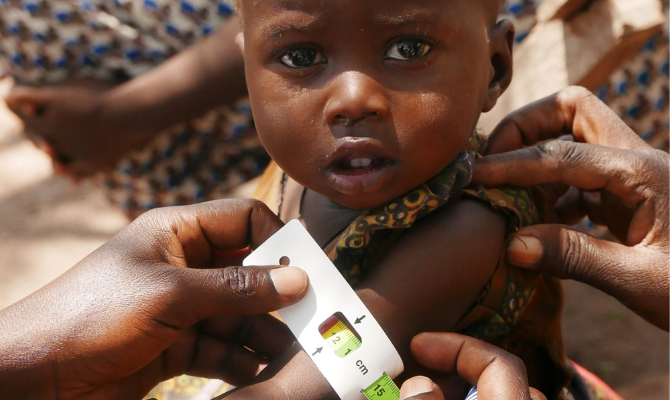
Concreteness, enthusiasm, and satisfaction are the common elements that emerge from all the comments collected from students after the training. “This seminar allowed us to develop our skills and makes us better prepared to carry out our work as nutritionists in society,” said one of the course participants, echoed by other classmates: “I learned a lot about ECD and severe malnutrition. In the future, I will always keep myself up to date on the needs of the community so that I can help children in particular.“ Another said, ”I will use the knowledge I have gained in my work caring for children and in the early childhood development process, but also to improve the development process of my own children and the children in my community, especially by creating toys and tools with them that are suitable for stimulating interaction.”
“Both seminars were a success, beyond our expectations. The young people were very attentive, emphasizing the importance of putting theoretical knowledge into practice,” added Chiara. “I am really impressed by the seminar. I learned much more than I expected; the sessions are very practical and I already feel useful to society and my community. Now I can contribute better to the growth of children, and this makes me feel lucky and grateful. I hope that other students can have the same benefits that I have obtained,” concluded one of the students.
It is above all by investing in education and promoting greater awareness that we can contribute to improving the health of communities. To grow the future, together.
